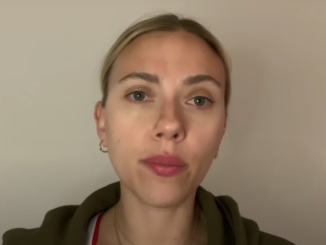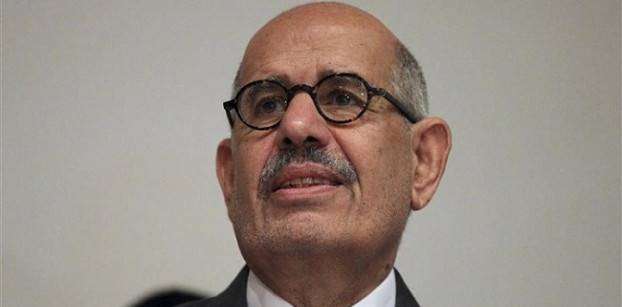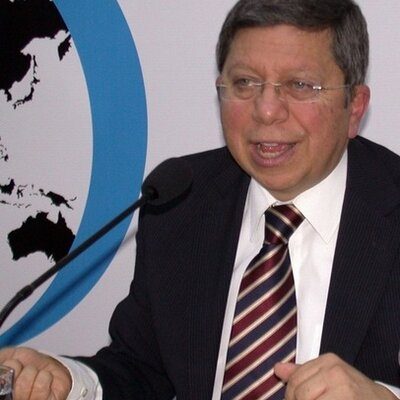
Ayman Nour reveals details of Turkish officials’ meeting with the representatives of the Egyptian opposition channels in Turkey, denying any reports about the closure of or practicing pressure on the Egyptian opposition channels broadcasting from Turkey
Ayman Nour, an Egyptian politician, chairman of the board of directors of Al-Sharq TV Channel and leader of Ghad Al-Thawra Party, said that the talk about closing Egyptian television channels broadcasting from Turkey never happened and is completely untrue.
In an interview with the “Midnight” program aired on Al-Jazeera Mubasher Channel, Friday, Nour said that there was a meeting between Turkish officials and representatives of the Egyptian opposition in Turkey.
According to Nour, the meeting addressed recent developments in the relations between Egypt and Turkey, noting that the performance of the Egyptian channels operating in Turkey was also discussed.
Nour said that representatives of the Egyptian opposition understood from the Turkish officials that there was a desire to amend the discourse of these channels to be in line with the media and press honor codes.
He pointed out that there is a dialogue with Turkish officials regarding the “language” used by the opposition channels, not the “nature” of the channels, stressing that the Turkish side did not request to close the channels or cancel any programs.
Nour denied completely any reports about deportation of opponents or media professionals, stressing that he would not accept mere proposal of this matter.
The leader of Egyptian Ghad Al-Thawra Party added that he discussed what happened in this meeting with the Al Sharq Channel crew and personnel, and that he asked them to abide by professional and objective rules.
Nour did not rule out likeliness of moving opposition channels to operate from outside Turkey if there is a need for that, stressing that he does not want to preempt events.
Nour also reiterated his assertion that prejudice to the main channels’ message would not be acceptable, indicating that in the case of anything like that they would discuss a number of options. Meanwhile, he emphasized that Turkish officials only asked the Egyptian opposition channels to abide by codes of conduct in their programs.
Nour, also a leading Egyptian opposition politician, said there was a degree of “exaggeration” in the reports about the Turkish requests. “The Turkish-Egyptian rapprochement will certainly have its ramifications,” he told Mekameleen in an interview.
“I do not expect that one of those ramifications is to shut down channels. Our brothers in Turkey may have a request for those channels to abide by codes of conduct only.
“We respect the circumstances which Turkey is going through now, but that will not force us to give up on our mission or principles,” Nour added.
Also, a senior source at Mekameleen TV said the Turkish government only requested the Egyptian opposition channel to “adjust its editorial line in accordance with journalistic professionalism”.
The source confirmed Turkey did not ask the channels to close down.
Turkey requests channels to tone down discourse
Both Turkish and Egyptian sources deny reports that Ankara has called for Turkey-based Egyptian opposition TV channels to stop broadcasting.
Turkish authorities have reportedly requested Egyptian opposition channels based in the country to soften their criticism of the government of Egypt’s Abdel Fattah el-Sisi amid a rapprochement between the two regional powers, according to Middle East Eye, a London-based website.
A senior Turkish government official who was briefed about the issue told the London-based website on Thursday that heads of Egyptian opposition TV channels, were told to tone down their criticism of the Egyptian government.
“They were just asked to soften their political criticisms against the Egyptian government and stop personally attacking Sisi,” the official said on condition of anonymity.
The official said, “there is no need for panic” and allegations that Turkey was going to close down the channels were untrue.
Ankara has been at loggerheads with Cairo since the 2013 military coup led by then defense minister Sisi against his democratically elected President Mohamed Morsi.
Morsi, a leading member of the Muslim Brotherhood, Egypt’s largest political movement – now crushed by Sisi, was backed by Turkish President Recep Tayyip Erdogan, who had refused to acknowledge Sisi’s legitimacy following the coup.
The two regional powers have also sparred over several issues in recent years, including the war in Libya, where they backed rival sides, and maritime disagreements.
As Sisi’s government has banned all political opposition and independent media, many have fled into exile and launched channels abroad, mainly in Turkey, which has become a safe haven for members of the opposition and supporters of Morsi.
In recent weeks, however, statements from both sides have hinted at fresh efforts to mend relations through formal diplomatic contacts. According to the Turkish source, these efforts included the request to tone down criticism of Sisi’s government by Istanbul-based opposition media.
Ayman Nour said there was a degree of “exaggeration” in the reports about the Turkish requests. “The Turkish-Egyptian rapprochement will certainly have its ramifications,” he told Mekameleen in an interview.
“I do not expect that one of those ramifications is to shut down channels. Our brothers in Turkey may have a request for those channels to abide by codes of conduct. “We respect the circumstances which Turkey is going through now, but that will not force us to give up on our mission or principles,” Nour added.
The move comes amid unprecedented international condemnation of Egypt’s human rights record under Sisi, with 31 countries decrying his government’s use of “terrorism” accusations against its political opposition.
In response to a UN Human Rights Council statement signed last Friday, Egyptian Foreign Minister Sameh Shoukry blamed “a strong media machine” run by the Muslim Brotherhood seeking to denigrate Egypt abroad, in reference to the Turkey-based opposition channels. The comment was perceived by opposition journalist Gamal Sultan as the “first official confession that opposition media has triumphed over state media”.



